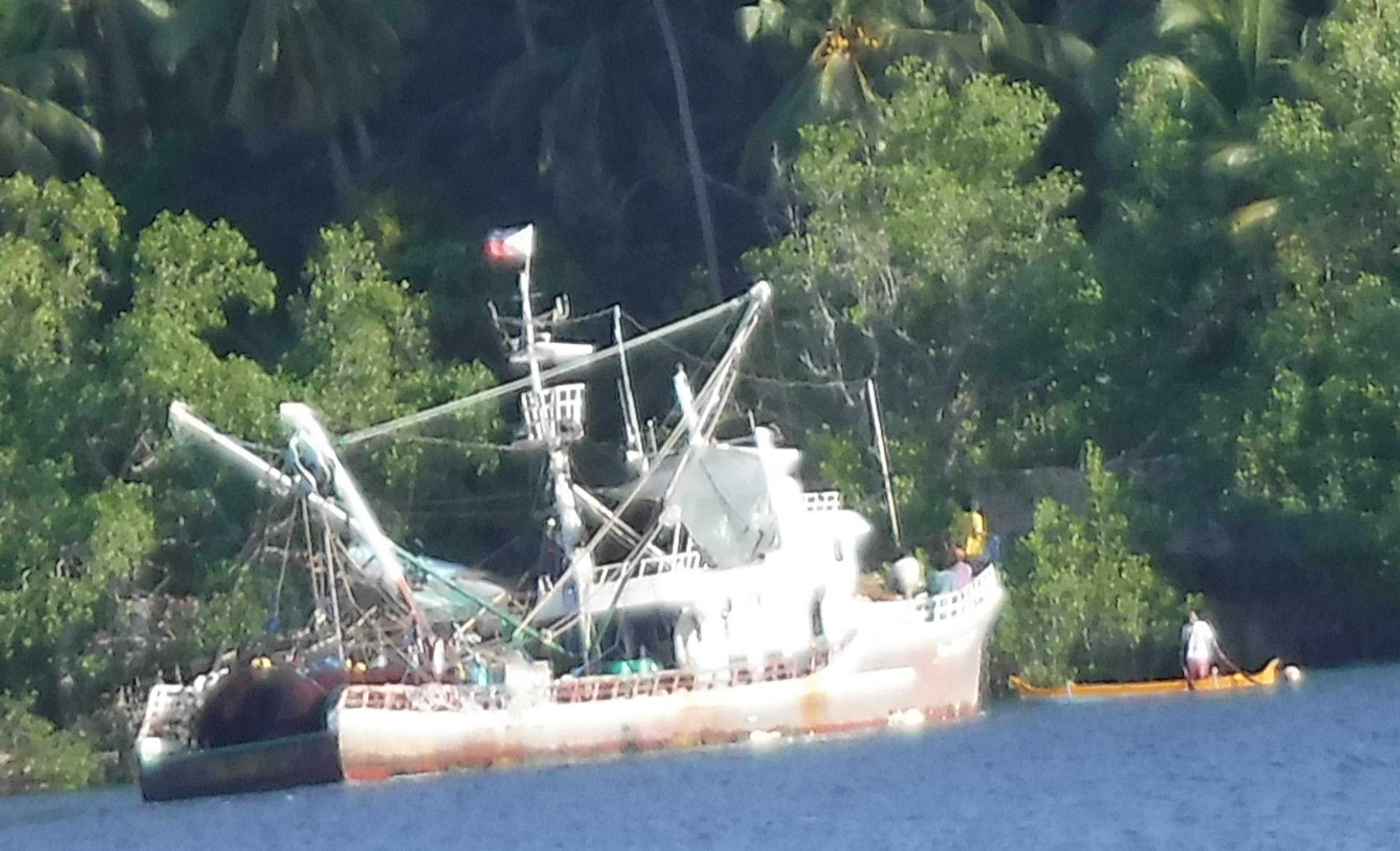ASIACALLING
Investigating Indonesia’s Illegal Fishing Trade: Part 2

Indonesia’s tropical waters are teeming with diverse marine life, including sought after skipjack and mackerel tuna. The waters of neighbouring countries on the other hand, have been severely overfished. So commercial fishers are irresistibly drawn to the riches of Indonesian waters, risking jail and huge fines for the lure of a big haul.
Indonesia is intensifying its efforts to wipe out the trade, but deeply entrenched corruption in both Indonesia and the Philippines, is making it hard.
In the second episode in this 2-part series - a joint investigation by KBR, Jaring and KataData - we meet the Filipino officials who are driving the illegal fishing trade from their side of the Sulawesi Sea.
Alfredo A. Lora is a Municipal Councillor from Davao, The Philippines. But despite his position, he’s no stranger to the business of illegal tuna fishing.
He’s been in the fishing business since 2010. And he owned two fishing boats Garuda 05 and 06, which were caught illegally fishing in Indonesian waters in January 2015. The boats captains, Matthew Mag-Aso and his son Jerry are now serving sentences in Indonesian prisons.
When we met at his home, Alfredo spoke bluntly about his fishing business. He told me he got started after buying a ship from local Mayor Virginia Cawa.
“This was a big time company. I’m actually talking about the business of [former] Mayor and current Vice Mayor Jerry Cawa and his wife, [current] Mayor Virginia Cawa. They sold their boats after they got caught in Indonesia,” he explained
Alfredo says he didn’t set out to repeat their mistakes.
“At first we were just fishing around here in Balut [The Philippines], but after a while our catch dwindled, because Filipino waters have been overfished.”
At the time, the price of tuna was high, proving too great a temptation. His crew started entering Indonesian waters around 2013.
Alfredo says there are few choices of work in Balut. Just fishing, labouring, or working as an underpaid civil servant.
Labouring in a plantation will earn you about $75 USD a month, he says. While fisherman can earn up to $1100 USD a month at sea, roughly the same salary as a bank manager in Balut.
“To tell you the truth this is a good business, because imagine you just invest around 300,000 pesos, and you make one Million, you’ve made a profit of 700,000 pesos,” he exclaimed. “That’s why people risk fishing beyond the border.”
Alfredo admits he’s well aware the practice is illegal.
He renamed his boat from Super Lola, to a much more Indonesian-sounding name, Garuda 05, in an attempt to deceive patrols.
And for every trip, Alfredo paid Indonesian man Yutson Ontorael $2000 USD. The money covered fake permits and boat registration, making it appear as though the boat was Indonesian, and therefore permitted to fish in Indonesian waters. The agreement also proved useful, Alfredo says, when the boats were twice caught, and Yutson bribed Indonesian officials.
“The first time they got caught, we were still able to negotiate, the authorities that caught them were probably low level officials, like at the Provincial level,” recalls Alfredo. “They just asked for crude oil and gas.”
But Alfredo concedes that by the third arrest, the scam was over.
“They said Jakarta officials caught the vessel. Nobody was imprisoned the first two times, but the third time, they were,” he stated.
Indonesia is now determined to send a strong warning to illegal fishers, blowing up and sinking foreign boats that are caught in Indonesian waters, and sending crews to jail.
Alfredo’s workers felt the brunt of Indonesia’s firm resolve. After being caught, Alfredo’s boats were sunk, along with nine other Filipino ships. The Captains, Matthew and Jeffrey Mag-Aso are now behind bars in North Sulawesi, Indonesia.
Former boat owner, and Vice Mayor of Balut Jerry Cawa says he can understand Indonesia’s stance.
”Some people from our place [Balut] get tempted with the volume of fish they can catch in Indonesia, that’s why they cross beyond our territorial waters,” he said. “It’s only natural that the Indonesian government arrests--not just Filipinos—but anyone who comes into their waters for the purpose of illegal fishing.”
Cawa is hopeful his government will negotiate to end Indonesia’s moratorium on foreign fishing.
Foreign boats not only take huge hauls, but also use ecologically damaging practices like cyanide fishing, dynamite fishing and trawling, destroying coral reefs, sea beds, and marine life.
If managed properly, Indonesia’s fishing industry will help provide economic and food security for the nation of 250 million – and growing - into the future.
Pushing harder than ever for tough measures against illegal fishing, Indonesia’s Minister of Maritime Affairs and Fisheries, Susi Pudjiastuti, is lobbying for IUU (Illegal, Unregistered and Unreported Fishing) to be recognised as a transnational crime. She hopes that will garner support from international agencies such as the United Nations, European Union and INTERPOL, to enforce the ban on foreign vessels fishing in Indonesian waters.
- IUU
- illegal fishing Indonesia
- Corruption
- The Philippines
Komentar (0)
KBR percaya pembaca situs ini adalah orang-orang yang cerdas dan terpelajar. Karena itu mari kita gunakan kata-kata yang santun di dalam kolom komentar ini. Kalimat yang sopan, menjauhi prasangka SARA (suku, agama, ras dan antargolongan), pasti akan lebih didengar. Yuk, kita praktikkan!